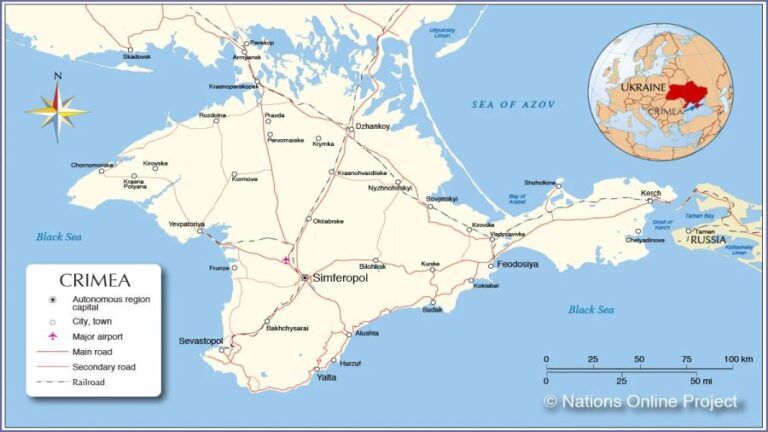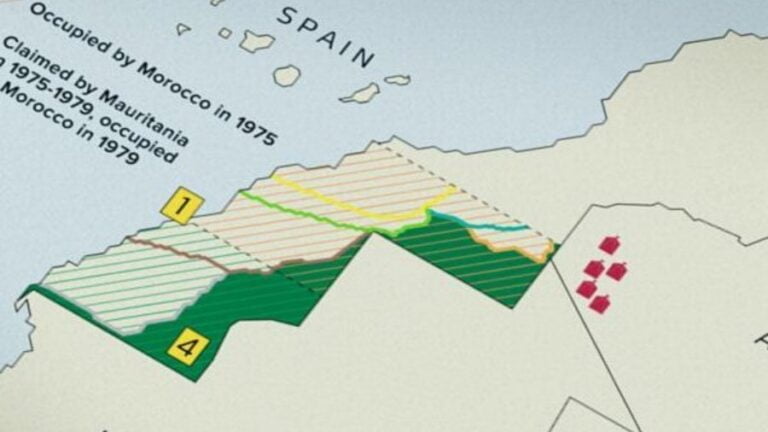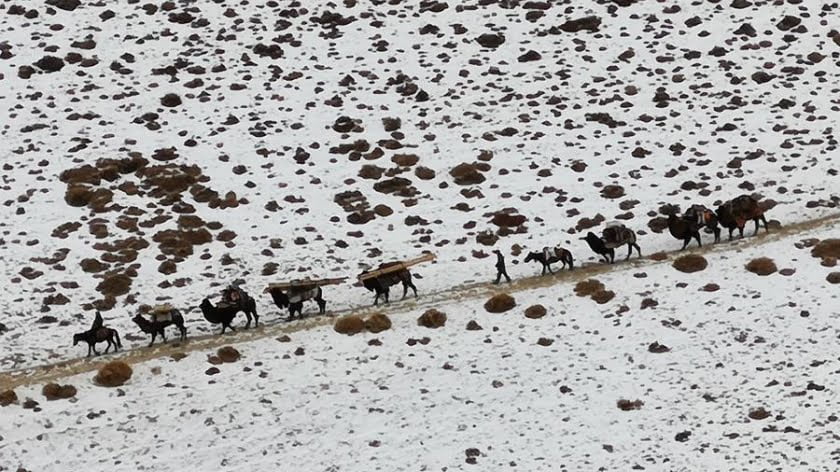The Horn of Africa + Sudan are Replacing the Middle East as THE Geo-Political Danger Zone
For decades, exploitative neo-imperialist geo-political military and economic (mis)adventures have tarnished generations throughout much of the Middle East. From the continued suppression of the Palestinians, to the Petro-politics of the Persian Gulf, to regime change missions throughout historic Mesopotamia, the Levant and Maghreb, the Middle East has been the 20th century’s geo-political/geo-economic prize that the US and its European allies have not allowed a day’s peace since the end of the First World War.
Today, over one-hundred years after the infamous Sykes-Picot Agreement between Britain and France, a new Middle East is emerging with a clear northern and southern bloc who are opposed to one another, but that each have good relations with both Russia and China. Additionally, while the northern bloc is comprised of key 20th century Soviet allies including Syria and Iraq, the southern bloc maintains traditionally strong relations with the US, although key members of this region are attempting to both economically and diplomatically diversify their respective portfolios. This is certainly the case with both Saudi Arabia and its de-facto (soon to be formal) ally Israel, as well as Egypt which is pivoting back to a position of trying to make the most from both historically good ties to Moscow and the sustained good ties with Washington dating back to the late 1970s.
The logical conclusion to such a formation is stability, however uncomfortable a stability it might be for some Middle Eastern nations. This is good news for some of the most prominent roads which comprise China’s One Belt–One Road trading, commerce and logistics super-highway.
But just as China’s key roads which link South Asia and East Asia to Europe via Eurasia are showing signs of recovery, the maritime belts along One Belt–One Road, are fast becoming the most worrying points of contention whereby the US and its allies seek to create disquiet for China and its partners.
This is particularly the case in respect of the Horn of Africa and also Sudan, just to the north of the Horn.
Washington is gearing up attempts to exploit the Horn of Africa and nearby states for the following reasons:
1. The Middle East’s Belt
Just as the roads from Pakistan in South Asia through Iran, the northern Arab world and into the north-east Mediterranean represent key east-west land routes for One Belt–One Road, so too does the Suez Canal represent the maritime version of the same route.
Trade from the Indian Ocean to the Mediterranean which passes through the narrow Bab-el-Mandeb connecting the Gulf of Aden and the Indian Ocean more widely to the Red Sea and Suez Canal, is therefore the axis around which this important route rests.
Because of this, the countries bordering both the Bab-el-Mandeb and Red Sea are the new geo-political ‘prizes’ to be won, especially now that the emergence of a new balance of land-power in the Middle East is quickly cementing.
2. Sudan’s President praises Russia
Sudan’s long serving President Omar Bashir has recently met with Russian President Vladimir Putin in Sochi where he praised Russia for being a stalwart partner of Sudan. Like Russia, China too has been visibly committed to Sudan’s territorial integrity at a time when the US championed the creation of South Sudan in 2011.
President Bashir has told Sputnik that the US seeks to continue its disregard for Sudan’s unity and create five new states out of Sudan. He called it a “major conspiracy” of the United States to effectively render Sudan a non-entity through exploiting factional tensions.
The Sudanese President also spoke enthusiastically about the creation of a would-be Russian military base in Sudan which he said is the only thing that could protect Khartoum from Washington’s ambitions.
He stated,
“We want to develop our military cooperation from attaches to advisers. We have a program for full armed forces’ upgrade… All our equipment is Russian, therefore, we need advisers in this area”.
A Russian presence in Sudan would be an unquestionable bulwark on the Red Sea which would work in the favour of preventing Sudan from sliding into the chaos the US is intent on orchestrating. Russia’s presence is also objectively healthy for China’s maritime belts to and from the Suez Canal.
3. China’s base in Djibouti
This year, China opened up its first ever naval and logistics base in the small state of Djibouti in the heart of the Horn of Africa. While the US and Japan also have bases there, China’s message to the wider world is clear: the safety and stability of waters surrounding the horn of Africa is of paramount importance. One Belt–One Road’s shipping routes in the region must remain free from both piracy and from malicious state intervention which seeks to disrupt the smooth flow of goods from the eastern maritime borders of the Indian ocean to the east coast of Africa.
A Russian base in Sudan would compliment China’s in Djibouti in so far as too key allies would be able to satisfy safety and stability concerns both along the Bab-el-Mandeb and Red Sea. Such a presence could also ultimately help to stabilise the rapidly deteriorating security situation on the Sinai peninsula that both Israel and members of the GCC seek to exploit, in spite of Riyadh and Tel Aviv maintaining a public alliance with Cairo.
4. China bringing stability to Somalia
In spite of a longstanding reputation as a failed state which has become little more than a pseudo-failed state, Somalia is more reliant on China for investment than on any other country by a long way. While the task of bringing stability to Somalia and eradicating the problem of piracy on Somalia’s costs is a substantial undertaking, China seems to have done a cost benefit analysis and decided in favour of continual investment in Sudan while cooperating on security matters with Mogadishu. This is a clear indication of how seriously China takes its long-term position in the Horn of Africa.
5. Chinese investments in Ethiopia to under-cut soft power
Ever since the late 1980s and early 1990s when Gorbachev’s incompetent leadership soiled Russia’s relations with Ethiopia, the US was quick to fill the void after the fall of Mengistu Haile Mariam.
However, today’s US relations with Ethiopia have been realistically undercut by massive amounts of Chinese direct monetary and infrastructural investment in the country.
As geo-political expert Andrew Korbyko recent wrote,
“Ethiopia, which is the second-most populous country in Africa and the world’s fastest-growing economy, is China’s premier partner in the continent, and Beijing just built the Djibouti-Addis Ababa railway as a de-facto Horn of African Silk Road for efficiently accessing this landlocked but rising African Great Power. Seeing as how Ethiopian-Chinese trade will in all likelihood begin to transit across CPEC en route to the People’s Republic, it makes sense for the Pakistani Navy to begin proactively safeguarding the ASGA SLOC between Gwadar and Djibouti together with the Chinese”.
Here, one sees how China is helping Ethiopia to regain links to the sea, thus circumventing Eritrea which is in the medium-term interest of Ethiopia, but also creating an environment wherein Eritrea and Ethiopia may slowly reconcile their implicitly poor relations through a mutual position as part of One Belt–One Road.
In the even more immediate term, Russia could engage in meaningful relations with Addis Ababa, also using its good relationship with China as a spring-board to develop this. If it is possible for Pakistan to develop a positive presence in the region as a result of its position along One Belt–One Road, Russia could theoretically do something similar. If Russia were to become an ever more important partner of Sudan while using China’s economic prestige in Ethiopia to increase its geo-political prestige in the region, this could only be a helpful diplomatic “win-win” that would be to the economic benefit of all parties.
CONCLUSION:
In all of these matters, the US is overtly the biggest obstacle to progress. If the US could exploit established Middle Eastern powers so easily in order to create deaconess long instability in the Arab world, it is a worrying reality that the instability of the Horn of Africa region and also the internal crises in Sudan and beyond, are even more ripe for exploitation than those in the Middle East.
Without doubt, the next big competition for world-dominance will not be in the Middle East but in the nearby Horn of Africa and into Sudan.
China and Russia seek to open the region to One Belt–One Road while the US seeks to exploit existing and latent tensions to lock existing states and possibly new states and statelets into an alliance with the US which would effectively prohibit full participation in One Belt–One Road.
I personally am not of the belief that a ‘third world war’ will break-out, but if it were to do so, it would not start in the Middle East, South Asia or the Korean peninsula. It would start in the Horn of Africa.
By Adam Garrie
Source: The Duran







